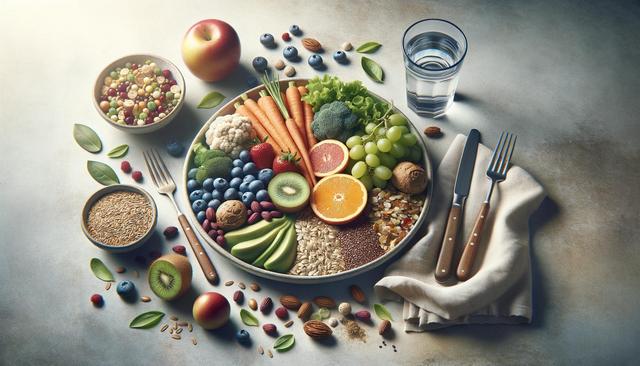Clean Eating Without Dieting: A Sustainable Approach to Wellness
Clean eating is not a diet—it’s a lifestyle that focuses on nourishing your body with whole, natural foods.

Understanding the Basics of Clean Eating
Clean eating is often misunderstood as a restrictive diet, but it’s actually a flexible and sustainable way of nourishing your body. At its core, clean eating emphasizes consuming whole, minimally processed foods that are close to their natural state. This includes fruits, vegetables, whole grains, lean proteins, and healthy fats. The goal is to fuel your body with nutrient-dense options that support long-term health without the pressure of calorie counting or food elimination.
Instead of focusing on what you can’t eat, clean eating encourages mindfulness around what you do eat. By prioritizing food quality over quantity, you naturally reduce your intake of added sugars, refined grains, and artificial ingredients. This doesn’t mean you have to avoid occasional indulgences; rather, it’s about creating balance and making informed choices that align with your health goals.
Benefits of Clean Eating Without Dieting
One of the most appealing aspects of clean eating is that it promotes well-being without the stress associated with traditional dieting. Many diets involve short-term restrictions that are difficult to sustain, often leading to cycles of yo-yo dieting. Clean eating, on the other hand, encourages consistency and gradual improvements that can lead to long-lasting benefits.
Some of the advantages of clean eating include:
- Improved energy levels due to steady blood sugar
- Better digestion from fiber-rich whole foods
- Clearer skin and reduced inflammation
- Enhanced mood and mental clarity
These benefits come from nourishing your body with foods that support its natural functions. When you eat clean, you’re not only feeding your body but also supporting your mental and emotional health in a sustainable way.
Simple Swaps for Everyday Meals
You don’t need to overhaul your entire diet to start eating clean. Making small, consistent changes to your meals can lead to significant improvements over time. Here are a few easy swaps to incorporate into your routine:
- Replace white rice with quinoa or brown rice
- Use olive oil or avocado oil instead of processed vegetable oils
- Choose whole fruit over fruit juice
- Snack on nuts or seeds instead of chips or candy
These changes help reduce your intake of added sugars and refined carbohydrates while boosting the nutrient content of your meals. The key is to focus on progress, not perfection. Even gradual adjustments can make a noticeable difference in how you feel each day.
Mindful Eating and Listening to Your Body
Clean eating also involves building a healthier relationship with food. This includes listening to your body’s hunger and fullness cues, eating without distractions, and recognizing emotional eating triggers. Unlike restrictive diets, clean eating encourages you to trust your body instead of following rigid rules.
Mindful eating practices can include:
- Sitting down for meals without screens
- Eating slowly and chewing thoroughly
- Appreciating the flavors and textures of your food
- Checking in with your hunger before and after eating
By paying attention to how food makes you feel, you become more in tune with your body’s needs. This approach fosters a sense of self-awareness that supports long-term wellness without the need for constant dieting.
Building a Clean Eating Lifestyle That Lasts
Sustainability is the cornerstone of clean eating. Instead of following a temporary plan, you’re creating habits that can last a lifetime. This means planning meals in advance, keeping healthy staples on hand, and allowing flexibility for social events and celebrations.
Some tips for maintaining a clean eating lifestyle include:
- Meal prepping for the week to avoid last-minute temptations
- Stocking your pantry with whole grains, legumes, and spices
- Trying new recipes that highlight seasonal produce
- Allowing space for treats without guilt
When clean eating becomes part of your daily routine, it feels less like a chore and more like an act of self-care. The emphasis is on nourishment, not deprivation, which makes it easier to stay consistent and enjoy the journey.
Conclusion: Embrace Clean Eating as a Lifestyle, Not a Diet
Clean eating without dieting offers a practical and empowering path to better health. By focusing on whole foods, mindful choices, and sustainable habits, you can improve your overall well-being without the pressure of restrictive diets. Whether you’re looking to boost your energy, support your digestion, or simply feel more in control of your nutrition, clean eating provides a flexible foundation that adapts to your needs. Start with small changes, stay consistent, and remember that every positive choice contributes to your long-term wellness.